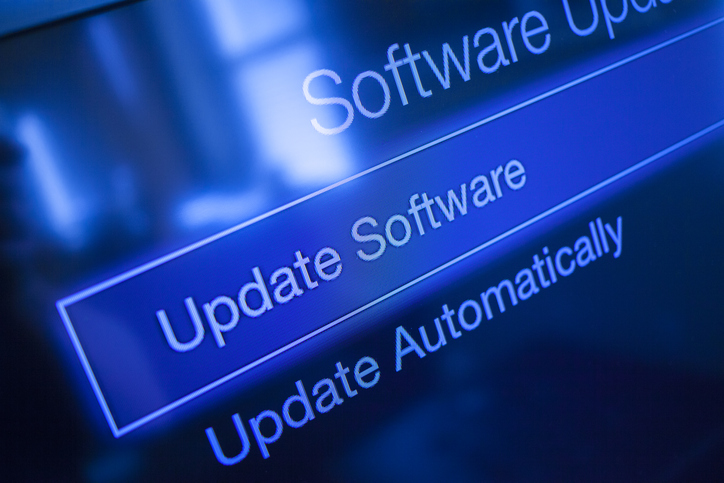In today’s fast-paced digital world, protecting your business payroll data is more crucial than ever. With the constant evolution of technology and the increasing number of cyber threats, ensuring your payroll data is secure and compliant is a top priority for businesses of all sizes.
In this article, we will discuss the importance of safeguarding your business payroll data, present the seven best strategies to protect it and explore how a cloud-based, fully compliant, and extra diligent management solution like MYOB Advanced Payroll can offer unparalleled security for your payroll data.
The Rising Tide of Data Security Attacks on Australian Businesses

Cybersecurity threats in Australia continue to surge, posing significant risks to businesses, including ransomware attacks and data breaches, with payroll data becoming an increasingly attractive target for cybercriminals. The Australian Cyber Security Centre (ACSC) Annual Cyber Threat Report 2021-2022 revealed a 13% increase in reported cybersecurity incidents, totalling 76,000 cases. This alarming statistic translates to one cybercrime incident reported every seven minutes, emphasising the escalating nature of the problem.
The impact of cyberattacks on payroll data can be extensive, causing financial losses, reputational damage, and legal consequences. Compromised data may lead to identity theft, fraudulent transactions, and unauthorized access to sensitive information. Such breaches erode trust and undermine a business’s stability and security.
As the threat landscape evolves, businesses must prioritise security when investing in new payroll systems. Implementing robust security measures reduces the risk of cyberattacks and safeguards payroll data. Businesses proactively protect themselves and their employees from cybercrime by choosing a system with strong security features and certifications.
The Importance of Safeguarding Business Payroll Data

As a business owner, your payroll data contains sensitive employee details, salaries, benefits, and tax information. With the increasing cyber threats in 2023, ensuring the security of your payroll data is more important than ever. Failing to protect this data can result in severe financial losses, reputational damage, and legal consequences, which could jeopardise your business and employee trust.
Prioritising a strategy of securing your payroll data whether it is on a cloud or in-house environment is critical, not only for compliance but also for protecting your employees and your business reputation. By taking proactive measures to safeguard your payroll data in 2023, you can confidently mitigate the evolving cyber threat landscape and maintain the trust and integrity that your business deserves.
7 Strategies to Protect Your Payroll Data
1. Regularly Roll Out Updates On Your Payroll Software

It’s essential to keep your payroll software current by incorporating the latest security patches, bug fixes, and updates, safeguarding against known vulnerabilities and emerging threats. This applies to both in-house and cloud-based applications, including operating systems and other programs that interface with your payroll system.
Establish guidelines for routinely updating your payroll software and related applications and rely on your solution partner or vendor to autonomously update cloud-based solutions. This approach ensures a secure payroll environment through continuous monitoring and timely application of security enhancements.
2. Implement Strong Access Controls

If multiple role-based users access the payroll system, limit access by implementing strong access controls and role-based permissions. Limit the number of users with administrative privileges and regularly review and update user access rights.
Imagine you have a 5-character password consisting of a blend of numerals, upper/lowercase letters, and symbols – how long would it take for a hacker to crack your password? Hive Systems states that it could happen instantaneously. Gone are the days when utilizing your preferred go-to password for every account (like abcd1234) was a viable option.
Despite your team’s potential frustration, establishing intricate password policies and mandating frequent password alterations is crucial for business management system data security. Cyber News offers the following contemporary recommendations:
- Minimum of 12 characters in length
- A combination of upper and lowercase letters, digits, and unique symbols
- Avoids easily recognizable keyboard patterns
- Doesn’t rely on personal information
- Distinct password for each account
To simplify the management of numerous complex passwords for your team, contemplate implementing a password management system. These applications enable the random generation of robust passwords, secure storage, and monitoring for duplicate passwords or possible security breaches.
3. Enhance Security with Multi-Factor Authentication and Single Sign-On

Multi-Factor Authentication (MFA) is a growing trend in Australia and worldwide, providing an extra layer of security for your payroll data. MFA requires users to provide two or more forms of identification before accessing your system, reducing the risk of unauthorised access due to compromised credentials.
Single Sign-On (SSO) is a user authentication service that allows users to access multiple applications using one set of login credentials, such as a username and password. SSO streamlines the login process and combined with MFA, strengthens the security of your payroll data by simplifying access management and ensuring only authorised users gain entry.
MYOB Advanced offers the SSO feature, demonstrating its commitment to modern security standards. To protect your payroll data, it is essential to choose a system like MYOB Advanced, which incorporates these capabilities and prioritises security.
4. Encrypt Sensitive Data and Restrict Access

Safeguard your payroll backup databases, by employing industry-standard encryption protocols. Encryption involves converting information into a code to prevent unauthorised access, ensuring your data remains secure from breaches.
With various encryption algorithms and techniques available, you can choose a level of security that suits your business needs. By encrypting sensitive data, you can ensure that even if a data breach occurs, the acquired information remains unreadable and unusable for cybercriminals.
Opting for a cloud-based payroll system allows you to restrict access to the right personnel, reducing the risk of internal breaches. Ensuring your payroll data is securely stored and accessible only to authorised staff adds another layer of protection, giving you peace of mind that your sensitive payroll information is well-protected.
5. Develop a Comprehensive Payroll Data Security Policy

Create and implement a comprehensive security policy that outlines responsibilities and expectations for all personnel concerning payroll data security. This policy should detail your organisation’s security posture, risk management strategies, and response plans in case of a security incident.
The Essential Eight from the ACSC is a great starting point for developing a cybersecurity strategy for your payroll environment. We’ve discussed the Essential Eight in our previous blog, which you can refer to for more information. Regularly review and update your security policy to stay on top of the latest security trends, evolving threats, and changing business needs.
6. Conduct Regular Security Training and Awareness

Human error accounts for the majority of Business Management Systems data security issues. An individual might inadvertently click on a fake invoice link in an email from an unreliable source, thus jeopardising your network’s security.
Considering the rapid evolution of cyber threats, training your team is not a one-time task but rather an ongoing initiative. You must provide continual education to ensure that everyone comprehends your policies and their responsibility in safeguarding your systems. Your IT team should allocate time to keeping up with the ever-changing threat landscape and adjusting your security measures accordingly.
When it comes to training your larger team, prioritise the following:
- Password policies
- Identifying phishing attempts
- Internal security protocols
- Incident response protocols
- Regular training may require a time investment, but it’s crucial to note that human error is your primary vulnerability. Well-trained personnel is less likely to commit errors, thereby reducing your risk of cybersecurity incidents.
By regularly educating and training your team, you can reinforce the importance of cybersecurity, instill best practices, and ensure that everyone remains vigilant against potential threats.
7. Implement a cloud-based ERP System with Strong Security Feature
Choosing an ERP system with built-in payroll that provides strong online security features is a crucial step towards securing your business data. A modern ERP system gives you a fully integrated Business Management System with your payroll and workforce management.
One such ERP system with strong security features is MYOB Advanced Business with Payroll. With features such as role-based access control, secure hosting, SSO, and comprehensive backup and recovery capabilities, MYOB Advanced Business with Payroll provides a secure environment for managing your business data.
Features of MYOB Advanced Payroll for Enhanced Payroll Data Security
Here are some of the key security features of MYOB Advanced Payroll and how they can help enhance your ERP data security:
ISO27001 Certification

MYOB Advanced Payroll follows strict security protocols for maintaining the confidentiality, integrity, and availability of your data. This certification ensures MYOB carries out yearly penetration testing to maintain security. It also guarantees proper procedures for adding and removing team members are followed.
Data Encryption Standard
MYOB Advanced Payroll employs industry-standard data encryption protocols to secure your sensitive data at rest and in transit. This helps prevent unauthorised access to your ERP data.
ATO DSP Operational Framework Certification

MYOB Advanced Payroll is certified by the Australian Taxation Office’s Digital Service Provider Operational Framework. This certification ensures that the system meets the ATO’s strict security and compliance requirements for digital service providers.
Mandatory Safeguards
MYOB Advanced Payroll provides mandatory safeguards around bank account changes. When changes are made, nominated users will receive an auto-alert, helping to prevent unauthorised changes and enhancing security.
Conclusion
Protecting your business payroll data is essential in today’s increasingly digital and interconnected world. By implementing the seven best strategies outlined above, you can significantly improve the security of your payroll data.
Moreover, investing in a fully compliant and secure cloud-based employee management system like MYOB Advanced Payroll offers unparalleled protection and peace of mind for your business and employees. Choose a solution that puts security first and ensures your payroll data is always in safe hands.

Let our experts at AlphaBiz Solutions help secure your Payroll System
Don’t leave your payroll data security to chance. Book a free demo with our experts today and take the first step towards protecting your business. With our extensive experience and certified MYOB Advanced Payroll professionals, we can help you implement solutions for that piece of mind.






